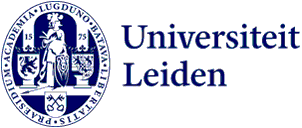Why still learn?
Academic work in the Age of AI.
By Marc Cleiren
28 July 2025
Why still learn something when a machine can do the job better? Throughout history, time and again technological advancements emerged that captured and reproduced reality more efficiently than humans could.

Evolve and coexist
Paul Delaroche famously declared, "From today, painting is dead," upon witnessing photography's rise in the 19th century (Delaroche, cited in Bann, 1997). Similarly, Antonin Artaud in 1938 expressed anxiety that film might overshadow theatre's immediacy and authenticity, diminishing its unique experiential quality. But: neither painting nor acting disappeared. Instead, both adapted by transforming artisanal practices into more experimental, abstract, and thought-provoking forms. Today, countless individuals engage enthusiastically in painting and theatre, driven by genuine passion for creativity rather than reproducing exact copies of reality. Likewise, innovations such as the printing press, desktop publishing, platforms like YouTube and TikTok have democratized information distribution without completely replacing older methods like handwriting, radio, or television. Each of the original crafts continues to evolve and coexist.
AI: better and faster?
And now the new kid on the block: Artificial Intelligence (AI) prompts the same existential question: why pursue learning a skill when AI can perform the task much better and faster? AI’s capabilities to produce scientific research papers, design educational courses, or conduct individualized teaching will very soon inevitably exceed human production capacity. This raises critical questions about how to fulfill our traditional academic roles.
Mastery
As we face this profound societal transformation driven by AI, we tend to define this in terms of ‘roles’ and functions. But we appear to overlook a more fundamental change. Right now, even before AI will replace many of our jobs, it has started eroding our personal confidence in human mastery and autonomy. AI's constant presence on personal devices and its superior efficiency in performing traditional tasks encourages dependence and diminish our human self-perception of mastery. It also thoroughly reshapes human relationships, with AI increasingly being used by many as a trusted confidant, overlooking privacy concerns.
How humans work
To deal with these changes we finally need to start applying our social scientific knowledge on ‘how humans work’, for instance through the lens of Self-Determination Theory (SDT; Deci & Ryan, 2000). The fundamental human needs for autonomy, mastery, and relatedness direct and motivate human learning, engagement, and overall happiness. Conversely, lack in these areas threatens our well-being virtually directly, setting us up for chronic anxiety, feelings of helplessness and depression. Perhaps soon affecting well-being in humanity rather than just human individuals.
Eroding self-image
Concerns about losing higher-order skills becoming obsolete are legitimate and real. However, the immediate personal impact of AI is less about skill redundancy but more about eroding our self-confidence, self-image, and belief in human autonomy and mastery. With students, educators, and researchers alike increasingly delegating their confidence and expertise to artificial intelligence, we are reshaping human identities and interactions.
Human-AI Psychology
I notice that, in our universities with breathtaking speed, students and teachers and even researchers are losing their confidence in them being able to be on top of their academic game, handing excellence to non-human intelligence. Psychologists (like me) should really study the quickening onslaught on our self-image as humans and academic professionals. I believe that as soon as possible, we should establish a Department of Human-AI Psychology, to study our interaction with (hitherto fortunately not always) superior Artificial Intelligence, since these artificial existences already freely live everywhere among us.
References
- Artaud, A. (1958). The Theater and Its Double (M. C. Richards, Trans.). Grove Press. (Original work published 1938).
- Bann, S. (1997). Paul Delaroche: History Painted. Reaktion Books.
- Deci, E. L., & Ryan, R. M. (2000). The "what" and "why" of goal pursuits: Human needs and the self-determination of behavior. Psychological Inquiry, 11(4), 227-268. https://doi.org/10.1207/S15327965PLI1104_01
